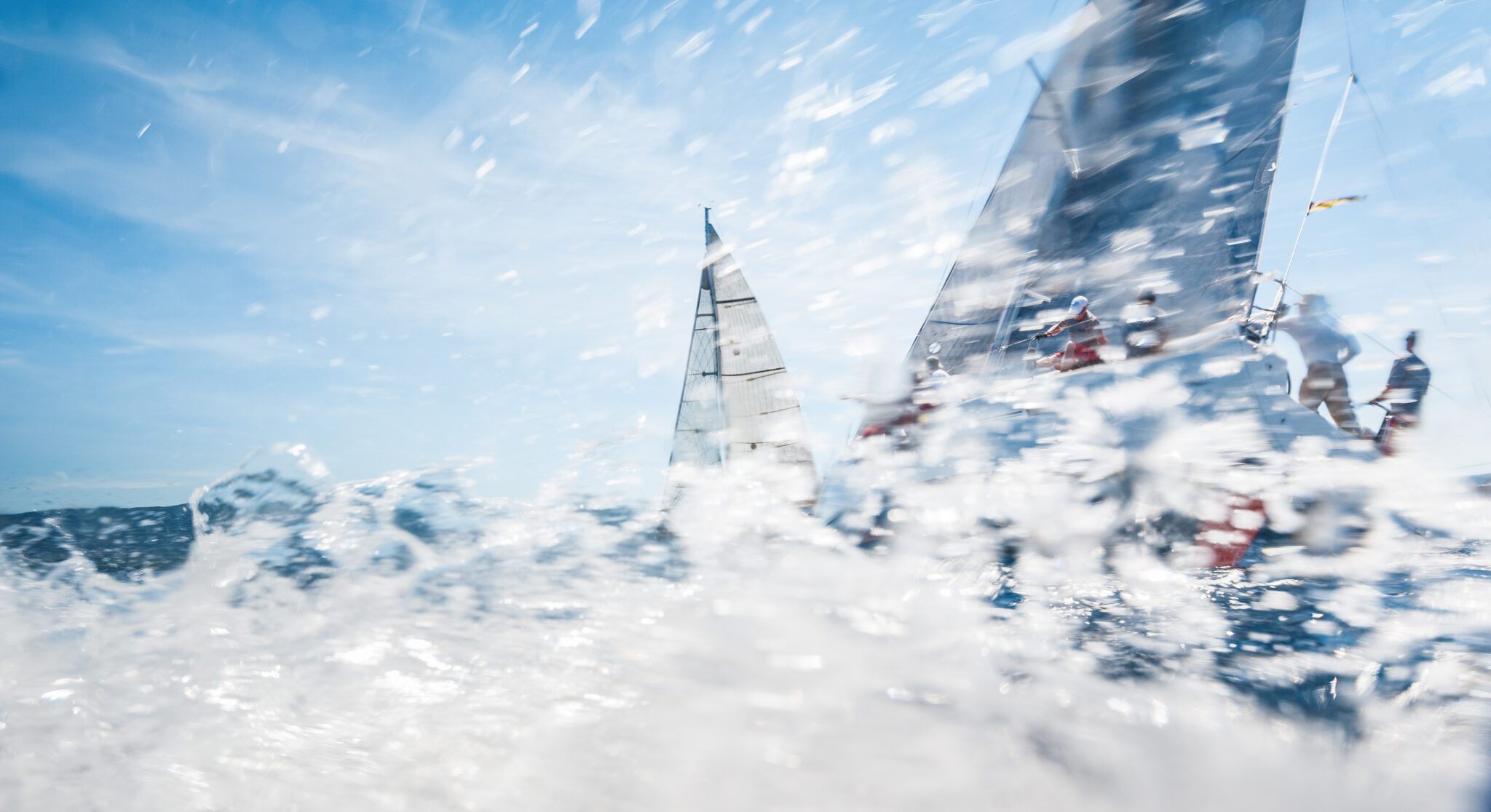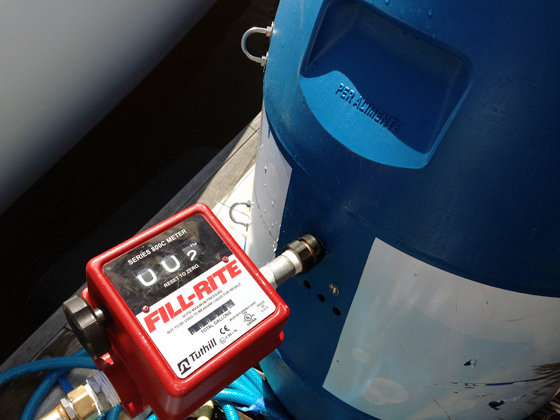
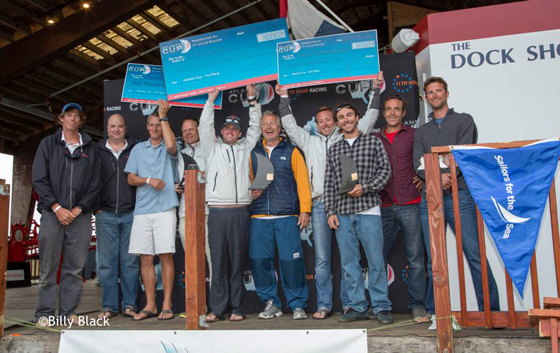
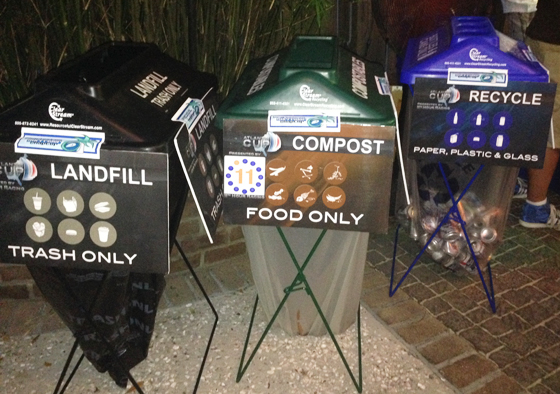
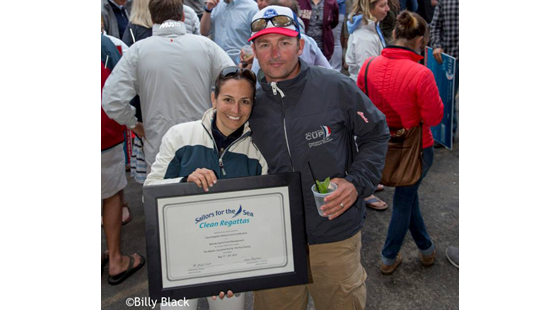
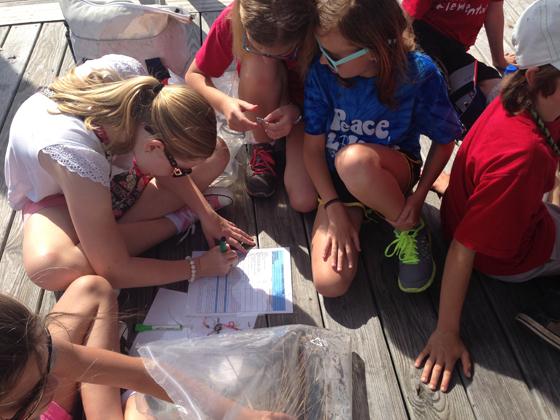
The Atlantic Cup presented by 11th Hour Racing was created in 2010 with a focus on reducing it’s environmental impact. The regatta has participated in Clean Regattas all four years it has been run, and has achieved Platinum Level Certification twice.
The 2014 Atlantic Cup presented by 11th Hour Racing featured all this and more. Below is a recap of just some of the challenges and a few of the solutions organizers from the Atlantic Cup and Sailors for the Sea came up with to address key issues affecting the ocean.
Good Waste Management Practices
First and foremost: all sailors were outfitted at the skippers’ meeting with individual bags for trash and recycling and informed that no waste could be dumped overboard. Sorting was critical. What’s the point of recycling if it’s in the same bag as your compostable items?
For onshore events, when it comes to proper recycling practices, it’s a tried-and-true recipe for failure to stick the “Recycling” bin on one side of the room and the “Landfill” bin on the other. Following Best Practice procedure, the Atlantic Cup had visible and convenient bins in sets of three, leaving no room for error. In Charleston, restraunts do not recycle, the Atlantic Cup reached out to the local Surfrider chapter and found a helpful ally in the cause.
What can you do: Implement the two or three bin system (two with just trash and recycling, three if your are able to compost.) The key to encouraging people to recycle is consistent availability of bins!

Alternative Fuels
To help boats get from the docks to the racecourse, Newport Biodiesel supplied each team with a B20 blend (80% unleaded/20% biodiesel). Teams often use a higher blend but Race Management sets the bar at 20%.
Each team was required to use one form of alternative energy to charge batteries. This may include, fuel cells, solar panels and/or a hydro-generator.
What you can do: If bio-diesel is available in your region start to slowly introduce this into your race committee boats. Click here for more information on using bio-diesel.
Carbon Neutral
Nexus Carbon for Development was the Official Carbon Offset Supplier for the 2014 Atlantic Cup. Race organizers tracked hotel stays, electricity, boat fuel usage and staff, partner and attendee travel. Additionally, trash travel must be tracked for carbon offsetting and in New York, the average distance of 272 miles to a landfill.
What you can do: By picking just one of these elements, for example race committee fuel usage, you can track a portion of your regattas carbon footprint and offset that specific element.
How does a carbon offset work? Watch this video to learn how Nexus offsets provide clean drinking water in Cambodia.
Outreach
The Atlantic Cup held a children’s day in all three cities where students were able to visit the boats, learn about offshore sailing and the plastic pollution problem affecting the oceans. Sailors and spectators alike learned about sustainability initiatives through announcements, signage, and activities like the course wide cleanup in Newport.
In partnership with Clean Ocean Access, 707 pounds of trash with the help of 111 volunteers.
What you can do: Ensure sailors at your event are well aware that you are participating in Clean Regattas and how they can help. Additionally plan a dock or rigging area cleanup at the end of each day to prevent trash from blowing in the water.
Water Bottle Reduction
The Atlantic Cup uses Zip 2 Water stations for all of their hydration needs. The station is kept on the dock close to the boats and a flowmeter was attached to track how many gallons of water were used. Sailors filled up their water tanks as needed for each leg of the race. At onshore events the Zip 2 water station is used, and for indoor events tap water is served in pitchers with reusable cups.
The only single use water bottles that can be seen at the race are located in the “ditch kits” which each boat has aboard in case of emergency – safety first!
What you can do: A good example for race organizers that you can alter your notice of race to ban single use bottles and ask boats to use their water tanks or larger jugs instead. Highlighting this aspect in communications to sailors well in advance is key to success so they are not caught off guard.

Run-off Reduction
Race organizers encouraged water only wash downs by the teams whenever possible. But with many visitors on their boats and hanging out in New York harbor, the occasional soap scrub was needed. To ensure non-toxic cleaning products were used, The Atlantic Cup partnered with Matt Chem Marine to supply eco-friendly soaps.
What you can do: Check out our list of non-toxic cleaning products. Then purchase a few bottles or ask your local marine store to be the “official non-toxic cleaning product supplier”. Place these bottles on the dock, and ask everyone to use them instead of their regular products. Over time this could make improvements in the water quality around your club.
Paper & Signage – Reduce & Reuse
The Atlantic Cup puts a high priority on being able to reuse their signage and regatta gear sold at events. All flags, banners, educational materials, shirts, hats, and coats are reused from year to year. The key to this is:
- not putting dates on these materials
- and to keep branding consistent from year to year.
All signage is made of fabric or bio-board instead of PVC or Vinyl, which reduces chemical footprint of signage. Additionally all paper used in the office and at events is FSC certified and 100% recycled. They also reduce printing wherever and whenever possible, particularly by relying on online results and communications.
What you can do: Look into using an electronic results service such as yachtscoring.com or regattanetwork.com. Sailors will be happy that they can pull up results on their phone and having it on a screen at the club will reduce the need to print paper.


